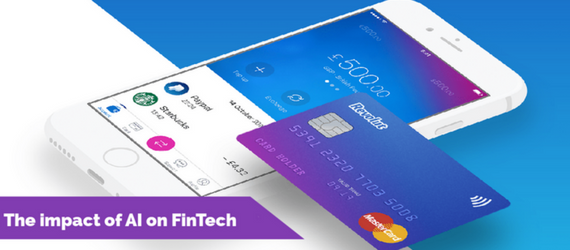At StarDust we follow current trends in tech with great attention and were therefore excited about discussions surrounding artificial intelligence (AI) during London FinTech week. Here is what we learned:
An Introduction to AI
One of the big topics at this year’s London FinTech Week was artificial intelligence and its impact on the industry. It is well known that AI is affecting every corner of the digital business world and FinTech is no exception. AI technologies can lead to improved lending, underwriting, and similar processes which result in expedited and easy to use solutions for end-customers. In addition to the faster decision-making capabilities it provides, AI is learning on a deeper level than it ever has. AI can predict things such as financial volatility in the market and make intelligent trades based on that information in a fraction of a second. Dr. Darko Matovski, CEO at causaLens, pointed out that the best innovation ideas will be the result of incorporating AI into human processes. The unparalleled efficiency and effectiveness of AI when analyzing data cannot be overstated. Progressively, AI is outperforming humans by wider margins than ever before.
Overall, FinTech investment worldwide is increasing. While previous years show an upwards trend nearing $28 billion in 2016, current predictions put 2017 past $30 billion (source: IBS Intelligence). When it comes to FinTech, the idea is to continuously improve AI software that can make better decisions than its human counterparts. AI’s ability to analyse large amounts of data faster and more effectively than a human can lead to faster decisions and offer a more complete picture due to the sheer quantity of data taken into consideration. AI technology is still scratching the surface of its potential real-world applications. We may very well be on the precipice of a golden age for artificial intelligence with no limit to the technology’s potential.
AI and Financial Fraud
The focus so far has been on developing AI technology as a whole and not as much focus has been put on applications. However, that is beginning to change, and FinTech is a prime example of AI being put to practical use. More and more, FinTech companies are employing AI to solve customer issues at financial institutions. An example of this is in financial fraud, where AI is capable of detecting suspicious activity in a manner that is far superior to any human fraud specialist. As a panelist at FinTech Week pointed out, machine learning and AI have existed for a long time now. For years, every fraud prevention company has utilized AI. As a result, new types of algorithms, procedures, and technology signify a new understanding in the way AI is applied in modern financial technology.
Deep learning is making the jump to the mainstream in the tech world and the potential should not be underestimated. “In the history of finance there has always been fraud,” says Joern Leogrande, executive vice president of mobile services at Wirecard. “This is something that no technology will [overcome]... That being said, I think that wearable technologies (built with AI) are much more secure” (source: Wired UK). However, many companies continue to utilize AI in support roles instead of having machines make decisions themselves. What’s more, when AI is trusted with decision making there is often strong human oversight to ensure nothing goes awry. The trust still isn’t quite there to hand over the most critical operations to AI, but AI is now being relied upon increasingly to do tasks that were previously done only by humans.
Avoiding disasters: the importance of testing AI software
AI is often very complex technology and, because of this, its software can be prone to bugs. When it comes to testing FinTech platforms and the AI software they might incorporate, many of the usual testing challenges are present. Whether a FinTech platform is undergoing QA or user acceptance testing, special attention should be paid to the AI software. Third party validation of an AI’s decision processes can also increase the trust a firm has in its AI applications.
The primary goal of an online or mobile banking platform is to be secure without compromising the user experience. It is essential to test FinTech platforms rigorously on a variety of devices with users who are independent from the development process. This will ensure accurate, unbiased test results and uncover a greater variety of bugs than tests conducted by developers. Plain and simple, if AI is going to dominate the FinTech market moving forward, the technology must be virtually bug free. Any bug in the AI software can diminish the user experience or, even worse, compromise the platforms security. The stakes are merely too high to not test.
Key Takeaways:
• AI represents one of the most important developments in the FinTech industry and was a hot topic at London FinTech Week 2017.
• AI’s ability to analyse large amounts of data faster and more effectively than a human can lead to faster decisions and offer a more complete picture.
• AI has a multitude of applications in FinTech such as fraud detection and investing. The number of applications for the software continues to grow rapidly.
• Independent testing on FinTech platforms is crucial for successful AI software integration as digital testing mitigates the risk of bugs. Software bugs can negate the benefits AI provides to a FinTech app or website.



